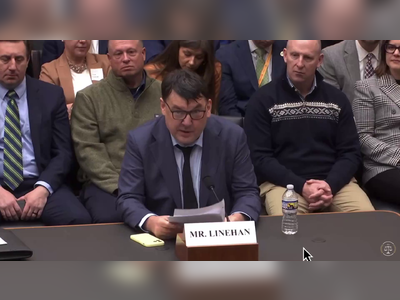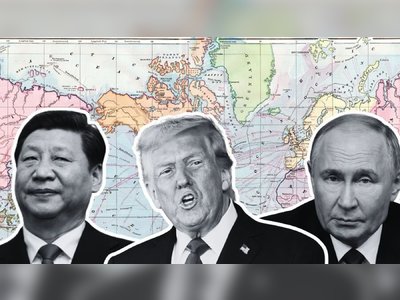Chinese Interest in Volkswagen’s German Factories Reflects Strategic Shifts
Chinese automakers eye Volkswagen sites earmarked for closure, amid broader economic and political implications.
Chinese officials and automakers have expressed interest in acquiring German factories marked for closure, specifically Volkswagen sites, according to sources with knowledge of Chinese government plans.
Such acquisitions would allow China to deepen its influence within Germany’s esteemed automotive industry, home to some of the oldest and most prestigious car brands.
Chinese companies have already invested across various sectors in Germany, Europe’s largest economy, from telecommunications to robotics.
However, they have not yet established traditional car manufacturing in Germany, despite Chinese ownership stakes in brands like Mercedes-Benz.
Entering the German automotive sector could be one of China’s most politically sensitive investments, as Volkswagen symbolizes Germany’s industrial might, which now faces challenges from global economic slowdowns and the shift to green technologies.
Manufacturing cars in Germany for sale in Europe would enable Chinese electric vehicle makers to circumvent EU tariffs on vehicles imported from China, potentially impacting the competitiveness of European automakers.
Whether bids come from private firms, state enterprises, or joint ventures, Chinese authorities reserve the right to approve specific overseas investments, likely playing a role from the onset.
Decisions will depend on the new German government’s China policy post-February elections.
The economies of China and Germany have grown closely intertwined, driven by investment and exports during Angela Merkel’s 16-year chancellorship.
However, relations have cooled as Germany’s current coalition seeks to reduce reliance on China, with Foreign Minister Annalena Baerbock terming China a rival and describing President Xi Jinping as a ‘dictator’.
Meanwhile, Germany considers China a systemic rival.
Volkswagen is exploring new uses for its Dresden and Osnabrück plants as part of cost-cutting measures in Germany.
The company, Europe’s largest automaker, faces declining sales due to increasing competition from Chinese firms.
While CEO plans to close several factories faced union resistance, it was agreed prior to Christmas that production at Dresden, employing 340 workers to make the ID.3 electric model, will halt in 2025, and operations at Osnabrück, with 2,300 employees building the T-Roc Cabrio, will cease in 2027.
Volkswagen is open to selling the Osnabrück plant to Chinese buyers, as stated by sources familiar with the company’s plans.
A spokesperson declined to comment on potential offers, focusing on finding sustainable solutions for the site.
Chinese companies are concerned about German union reception, given unions hold significant influence in Germany’s corporate advisory boards and demand substantial guarantees for sites and jobs.
Stefan Soldanski, a union representative from Osnabrück, indicated willingness to produce for a Volkswagen Chinese joint venture under German standards.
A Chinese Foreign Ministry spokesperson emphasized that companies intending to invest in Germany should be allowed to do so in a fair, equitable business environment.
Selling plants could be a more cost-effective option for Volkswagen than complete closures, with potential valuations between €100 million to €300 million according to industry bankers.
As Europe remains the second-largest market for electric vehicles, Chinese manufacturers seek to set up factories to avoid EU tariffs.
Most have opted for new plants in lower-cost countries with weaker unions, such as BYD in Hungary and Turkey.
Leapmotor plans collaboration with Stellantis in Poland, while Chery Auto will commence EV production at a former Nissan factory in Spain.
Chinese investors have considered western European sites, including Ford’s Saarlouis plant in Germany and Audi's Brussels facility.
Leapmotor reportedly looked into producing EVs at a German facility, while Chery evaluates options in Europe and expects a decision this year.
BYD has long-term goals independent of short-term political climates.
Volkswagen is navigating significant challenges as demand for new vehicles in Europe declines from pre-pandemic levels of 17 million units annually.
Global competition from Chinese firms intensifies, with a 37% drop in operating profit cited in early 2023 due to high fixed costs and restructuring expenses.
The company plans to gradually eliminate 35,000 jobs and paused wage hikes as part of cost-saving agreements with unions, driven by high energy prices, Chinese competition, and potential U.S. tariffs.
Volkswagen’s extensive reliance on China for growth and production in recent years now faces uncertainty, casting doubts over the automaker's previous expectations in the Chinese market.
Such acquisitions would allow China to deepen its influence within Germany’s esteemed automotive industry, home to some of the oldest and most prestigious car brands.
Chinese companies have already invested across various sectors in Germany, Europe’s largest economy, from telecommunications to robotics.
However, they have not yet established traditional car manufacturing in Germany, despite Chinese ownership stakes in brands like Mercedes-Benz.
Entering the German automotive sector could be one of China’s most politically sensitive investments, as Volkswagen symbolizes Germany’s industrial might, which now faces challenges from global economic slowdowns and the shift to green technologies.
Manufacturing cars in Germany for sale in Europe would enable Chinese electric vehicle makers to circumvent EU tariffs on vehicles imported from China, potentially impacting the competitiveness of European automakers.
Whether bids come from private firms, state enterprises, or joint ventures, Chinese authorities reserve the right to approve specific overseas investments, likely playing a role from the onset.
Decisions will depend on the new German government’s China policy post-February elections.
The economies of China and Germany have grown closely intertwined, driven by investment and exports during Angela Merkel’s 16-year chancellorship.
However, relations have cooled as Germany’s current coalition seeks to reduce reliance on China, with Foreign Minister Annalena Baerbock terming China a rival and describing President Xi Jinping as a ‘dictator’.
Meanwhile, Germany considers China a systemic rival.
Volkswagen is exploring new uses for its Dresden and Osnabrück plants as part of cost-cutting measures in Germany.
The company, Europe’s largest automaker, faces declining sales due to increasing competition from Chinese firms.
While CEO plans to close several factories faced union resistance, it was agreed prior to Christmas that production at Dresden, employing 340 workers to make the ID.3 electric model, will halt in 2025, and operations at Osnabrück, with 2,300 employees building the T-Roc Cabrio, will cease in 2027.
Volkswagen is open to selling the Osnabrück plant to Chinese buyers, as stated by sources familiar with the company’s plans.
A spokesperson declined to comment on potential offers, focusing on finding sustainable solutions for the site.
Chinese companies are concerned about German union reception, given unions hold significant influence in Germany’s corporate advisory boards and demand substantial guarantees for sites and jobs.
Stefan Soldanski, a union representative from Osnabrück, indicated willingness to produce for a Volkswagen Chinese joint venture under German standards.
A Chinese Foreign Ministry spokesperson emphasized that companies intending to invest in Germany should be allowed to do so in a fair, equitable business environment.
Selling plants could be a more cost-effective option for Volkswagen than complete closures, with potential valuations between €100 million to €300 million according to industry bankers.
As Europe remains the second-largest market for electric vehicles, Chinese manufacturers seek to set up factories to avoid EU tariffs.
Most have opted for new plants in lower-cost countries with weaker unions, such as BYD in Hungary and Turkey.
Leapmotor plans collaboration with Stellantis in Poland, while Chery Auto will commence EV production at a former Nissan factory in Spain.
Chinese investors have considered western European sites, including Ford’s Saarlouis plant in Germany and Audi's Brussels facility.
Leapmotor reportedly looked into producing EVs at a German facility, while Chery evaluates options in Europe and expects a decision this year.
BYD has long-term goals independent of short-term political climates.
Volkswagen is navigating significant challenges as demand for new vehicles in Europe declines from pre-pandemic levels of 17 million units annually.
Global competition from Chinese firms intensifies, with a 37% drop in operating profit cited in early 2023 due to high fixed costs and restructuring expenses.
The company plans to gradually eliminate 35,000 jobs and paused wage hikes as part of cost-saving agreements with unions, driven by high energy prices, Chinese competition, and potential U.S. tariffs.
Volkswagen’s extensive reliance on China for growth and production in recent years now faces uncertainty, casting doubts over the automaker's previous expectations in the Chinese market.
AI Disclaimer: An advanced artificial intelligence (AI) system generated the content of this page on its own. This innovative technology conducts extensive research from a variety of reliable sources, performs rigorous fact-checking and verification, cleans up and balances biased or manipulated content, and presents a minimal factual summary that is just enough yet essential for you to function as an informed and educated citizen. Please keep in mind, however, that this system is an evolving technology, and as a result, the article may contain accidental inaccuracies or errors. We urge you to help us improve our site by reporting any inaccuracies you find using the "Contact Us" link at the bottom of this page. Your helpful feedback helps us improve our system and deliver more precise content. When you find an article of interest here, please look for the full and extensive coverage of this topic in traditional news sources, as they are written by professional journalists that we try to support, not replace. We appreciate your understanding and assistance.











